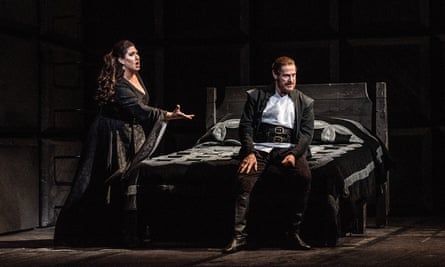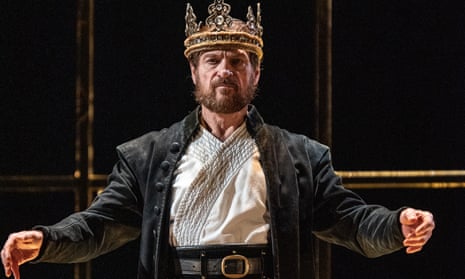The slightly shrill comment that Giuseppe Verdi’s Macbeth is no match for the great Shakespeare play, is an unfair comparison. The opera is another thing entirely. Just as Mozart’s Marriage of Figaro is not the great Beaumarchais play of its day, La Folle Journée. Just as Rossini’s opera The Barber of Seville is not Giovanni Paisiello’s version, or Carlo Goldoni’s commedia dell’arte inventions. Neither the marvellous Japanese cinematographer Akira Kurosawa, and his reworking of Macbeth in his 1957 film Throne of Blood. Nor the contemporary opera by Thomas Adès, The Tempest.
None are Shakespeare. All are different mountain-tops, smithied into something new and equally beautiful in their own ways.
Verdi was a huge lover of the English bard. Three of his greatest operas have their feet firmly planted in Shakespeare. Otello and The Merry Wives of Windsor (which became his opera Falstaff) contain great chunks of the Bard’s verse in translation. We know Verdi had intended to write an operatic King Lear. How amazing that would have been. Some say that Rigoletto, with its jester and father-daughter relationship, is Verdi’s Lear. Artists, writers, painters and poets have always reworked the greats, sometimes in the face of bitter complaint by their originators.
Shakespeare himself was not averse to manipulating facts for his own dramatic effect. His source material for Macbeth was Holinshed’s Chronicles, in which, for example, Banquo was recorded as being an equal and an ally of Macbeth’s in the overthrow of the King. In Shakespeare’s play, Banquo becomes a device to heighten the injustice of the murderous scheming of Macbeth and his Lady.

Verdi takes this a step further in his opera and, living in revolutionary times, he took his lead from Shakespeare’s dramatic licence in respect of Banquo. The opera was premiered in 1847 at the height of revolutionary Italy, when Garibaldi was galvanising city states to fight for a united country. Verdi’s great anthemic chorus “Patria Oppressa”, towards the end of the opera, was lucky to have got past the censors of the day.
To my mind, opera – and musical theatre – does function in a different way to “straight” theatre. Consider the Shakespeare plays. Monumental literary works written at the end of the 16th century, when we are led to believe that the English language and vocabulary was at its richest. Plays are perhaps linear things. Language, a linear conceit, and words flowing in this or that direction. Gorgeous Shakespearian text, cascading in from the ether on to a steel hawser travelling from point A to point B.
What then is musical theatre, or opera? I think of it as a kind of synesthesia, where all the senses are mixed into a great tangle of truths. The great gobbets of information, of colour and emotion: harmonies and melodies, swirl around in a kind of amorphous cauldron of information: some of it literal and some abstract.
Fundamentally much of it is open to the interpretation and perception of the listener and the performer. What is true for one, will never be for another. Music fills in the gaps where words end. Or, like a beautiful wall of elegant Delft tiles, music is the grouting holding it all together.
The great tenor Giuseppe di Stefano once said that he never really got to grips with Verdi’s great roles until he’d performed them about 50 times. I remember reading that and laughing – until I started performing these great Verdi roles. I can honestly say that I have failed at singing the role of Macbeth at least 30 times. And that’s in front of audiences! But you have to give yourself permission from the past to attack the role again, and to remember that as a performer, you don’t decide what the overall effect is. You are just one of many elements that go into the melting pot. And what the audience takes from that – whether it’s tiny sparks or great flashes of Shakespeare in the darkness – is up to them.

Comments (…)
Sign in or create your Guardian account to join the discussion